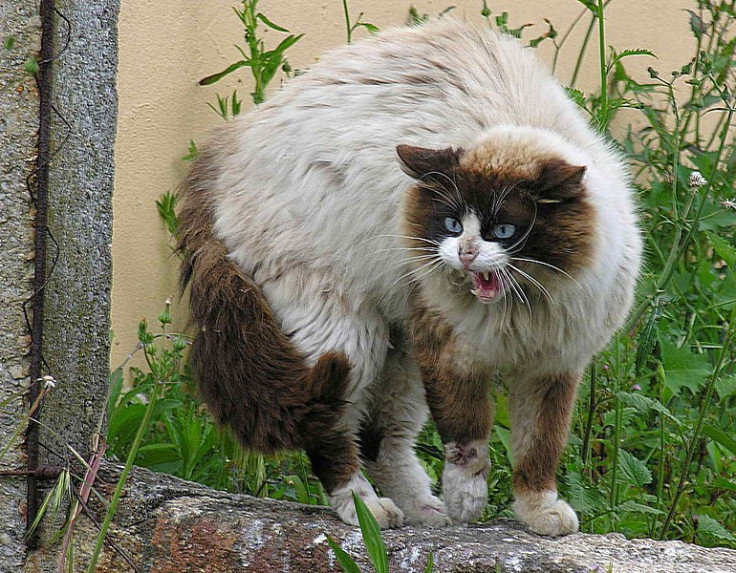UK Pet Owners Warned that Cats Could Carry Tuberculosis

Domestic cats could pass deadly bovine tuberculosis (bTB) on to humans after contracting it from badgers or cattle, researchers have warned.
According to a study from the University of Edinburgh, more pet cats could be infected with the disease than previously thought.
The study states that around one in every 1,000 cats could be infected with a form of tuberculosis by venturing into badger setts or by coming into contact with rodents who have done the same thing.
Cats can also pick up bTB directly from cattle or by drinking infected milk.
With the potential number of cats with the disease higher than previously thought, veterinarians have warned of the threat to human health if pets have not been vaccinated.
Carl Padgett, former president of the British Veterinary Association, told the Sunday Telegraph, "The real issue with cats with TB is that unless they are feral, they tend to have close contact with humans.
"That is where you ramp up a degree of the public health risk through direct contact with cats that have TB and that is where I see the importance rather than driving the outbreak among cattle."
Scientists at the University of Edinburgh Royal School of Veterinary Studies say one-fifth of cats with the disease are thought to be infected by Mycobacterium bovis - the strain found in cattle and badgers - whereas most were caused by Mycobacterium microti, usually found in voles.
Professor Danielle Gunn-Moore, who led the study - which is published in the journal of Transboundary and Emerging Diseases - said, "This study has revealed that the potential incidence of feline mycobacteriosis in Great Britain is higher than previously thought.
"These findings suggest that these infections are a common cause of clinical significant disease in cats in Great Britain and more work needs to further improve our understanding of these infections."
In humans, tuberculosis is caused by a type of bacteria known as Mycobacterium tuberculosis.
Gunn-Moore believes the risk of cats passing on the disease to humans is low.
"Cats are more of an end stage host rather than being a risk to spread to other animals," she said.
"In all the cases I have dealt with in Britain, I have not seen any cases of humans being infected by cats. There are a small number of cases where the infection has passed from dogs to humans.
"My biggest concern is the fact this is spilling over from cattle and badgers into cats, and poses a risk to cats.
"We are seeing about 1% of samples sent to labs infected with mycobacterium, which is scary, and that is why we are keen to raise awareness so vets can look out for it."
Padgett added, "We don't want to get this out of proportion with suggestions that cats are the main spreader of TB. If that was the case, we would have seen a far greater incidence of TB in cats.
"We also don't want to panic the general public that cats are a major health risk for TB, but there is something here that needs to be looked at."
© Copyright IBTimes 2025. All rights reserved.






















